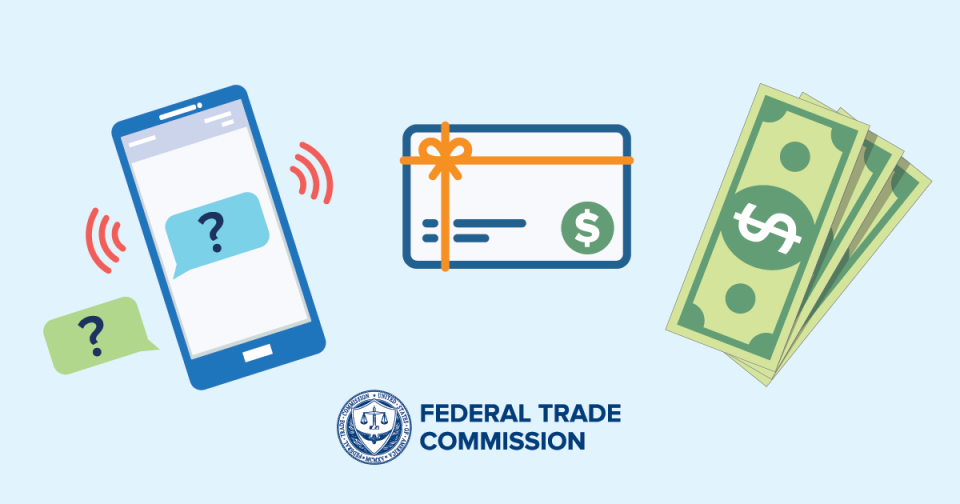Navigating the immigration process can be daunting for anyone. From gathering documentation to understanding complex legal requirements, even the most prepared applicants can feel overwhelmed. Unfortunately, scammers exploit this confusion, targeting immigrants with false promises and deceptive practices. At SwiftPass Global, we understand the importance of guiding you toward legitimate resources while helping you avoid fraudulent schemes. In this post, we’ll outline common immigration scams, provide strategies to spot and avoid them, and share where to get real assistance, empowering you to move forward confidently in your immigration journey.

1. Common Immigration Scams to Watch For
Scammers use a variety of tactics to mislead immigrants into handing over money or personal information. Below are some of the most prevalent schemes:
a. Notario and Unauthorized Practice Scams
-
What It Is: Often called “notario scams,” fraudsters pose as legal professionals—even claiming official titles like “notary” or “immigration consultant”—to charge fees for misleading or incorrect advice.
-
How It Works: In many Latin American countries, “notario” equates to a licensed attorney. Scammers capitalize on this misconception, offering to prepare and file immigration forms—for a fee—while lacking the proper credentials or knowledge. Victims may sign blank or falsified documents, jeopardizing their chances of legal immigration.
-
Warning Signs:
-
Demands for payment via gift cards, wire transfers, or informal methods.
-
Urgency to sign blank forms or documents you haven’t reviewed.
-
Promises of guaranteed outcomes (e.g., “We’ll get your visa approved in X days”).
-
-
Protect Yourself: Always verify that anyone offering legal advice is accredited by the U.S. Department of Justice (DOJ) or is a licensed immigration attorney in good standing. Free resources—like the FTC’s graphic novel on notario scams—illustrate these warning signs in detail.
b. Fake Government Websites and Documents
-
What It Is: Scammers create websites or documents that closely resemble official government pages (e.g., USCIS.gov). They may lure you to these sites and collect fees or personal data under false pretenses.
-
How It Works: You might receive an email or see an online ad directing you to “USCIS-ImmigrationServices.com” or a similar URL. The site may ask for payment to download forms or provide “expedited” processing. These impostor sites often look very legitimate at first glance.
-
Warning Signs:
-
URLs that do not end in “.gov” or “.mil.”
-
Instructions to pay via non-standard methods (e.g., Bitcoin, Western Union, gift cards) instead of official payment channels.
-
Downloads or forms that are not freely available on uscis.gov.
-
-
Protect Yourself: Always double-check the website’s URL. Official U.S. government resources end in .gov (e.g., USCIS.gov). If you’re ever unsure, visit USCIS.gov directly rather than following links in emails or ads.

c. Social Media Impersonation Scams
-
What It Is: On platforms like Facebook, TikTok, or WhatsApp, fraudsters impersonate immigration lawyers, government officers, or reputable organizations. They promise quick approvals in exchange for upfront fees.
-
How It Works: You may see a post or ad offering guaranteed work permits, green cards, or citizenship. After engaging (liking or commenting), scammers initiate contact—often via private message or WhatsApp—and demand payment to schedule fake virtual appointments with a “USCIS officer.”
-
Warning Signs:
-
Offers to conduct official USCIS appointments via Zoom or WhatsApp. In reality, USCIS sends appointment notices by mail or via a MyUSCIS account.
-
Requests to pay filing fees through Western Union, Zelle, or prepaid gift cards.
-
Claims of being able to bypass regular processing times or legal requirements.
-
-
Protect Yourself: Verify any immigration-related appointment or payment through official channels. Legitimate USCIS communications never require social media messaging apps for appointments.
d. Phone and Email Scams Impersonating DHS/USCIS
-
What It Is: Scammers call or email, claiming to be from the Department of Homeland Security (DHS), U.S. Citizenship and Immigration Services (USCIS), or Immigration and Customs Enforcement (ICE). They threaten legal action unless you pay immediately.
-
How It Works: A caller may say, “You missed an interview; pay a fine now or face deportation,” or “Your immigration case is in jeopardy—send money via gift card to resolve it.” Some emails include official DHS logos, convincing victims of their legitimacy.
-
Warning Signs:
-
Unsolicited calls demanding payment or personal data.
-
Instructions to pay via non-traceable methods (e.g., gift cards, wires).
-
Claims of urgency that pressure you to act immediately.
-
-
Protect Yourself: Remember, USCIS and ICE will not call out of the blue to demand money or personal information. Instead of complying, hang up and independently verify by calling the official USCIS customer service line (1-800-375-5283) or checking your case status on USCIS.gov.
2. How to Spot Red Flags Early
Recognizing the signs of a scam before you become a victim can save you significant stress and financial loss. Keep an eye out for:
-
Unrealistic Guarantees: Be suspicious of anyone promising guaranteed visa approval or citizenship. No one can guarantee outcomes in a complex legal process.
-
Requests for Unusual Payment Methods: Legitimate legal fees are paid to USCIS via check, money order, or online through official channels. If someone asks for gift cards, cash wires, or cryptocurrencies, it’s a scam.
-
Pressure Tactics: Scammers create artificial urgency—“Act now, this offer expires in 24 hours”—to prevent you from verifying claims.
-
Unaccredited Practitioners: Always confirm that an immigration advisor is either a licensed attorney or a DOJ-accredited representative. Free online directories (e.g., AILA’s Find a Lawyer tool) can help you verify credentials.
By pausing to question any request that feels out of the ordinary, especially in terms of payment methods or too-good-to-be-true promises, you’ll reduce your risk of falling victim to fraud.
3. Where to Get Real Help
When you need trustworthy guidance, turn to these reliable resources:
U.S. Citizenship and Immigration Services (USCIS.gov)
-
The official source for all immigration forms, filing fees, and processing information.
-
Use the “Check Case Status” feature to verify any pending applications.
-
Access free, up-to-date information on visa categories, naturalization requirements, and policy changes.
Department of Justice (DOJ) Accredited Representatives
-
The DOJ’s recognition indicates the individual or organization is authorized to provide legal advice.
-
Visit the DOJ’s “Recognition and Accreditation Program” webpage to confirm accreditation before engaging services.
American Immigration Lawyers Association (AILA)
-
AILA’s “Find a Lawyer” directory helps you locate licensed immigration attorneys near you.
-
Lawyers listed are members of a professional association dedicated to high ethical standards.
Non-Profit Organizations and Community Legal Clinics
-
Report suspected scams at ReportFraud.ftc.gov. You can submit as much or as little personal information as you’re comfortable with.
-
Access multi-language resources, including graphic novels and brochures, to learn more about immigration fraud.
Remember, legitimate immigration help should never cost exorbitant fees, require immediate payment through untraceable channels, or pressure you with unrealistic timelines. Always double-check credentials and confirm any critical information through official government websites.

4. Why Choose SwiftPass Global?
SwiftPass Global is committed to providing transparent, reliable, and scalable immigration services for individuals and families. Here’s how we stand out:
-
Licensed Expertise: Our team includes DOJ-accredited representatives and experienced immigration attorneys in good standing, ensuring you receive accurate legal advice tailored to your case.
-
Transparent Pricing: We offer clear fee structures with no hidden costs. All payments to USCIS are made directly through official channels—never via gift cards or wire transfers to third parties.
-
Personalized Support: Whether you’re applying for a work visa, family-based petition, or permanent residency, we guide you through each step, from document preparation to interview coaching.
-
Technology-Driven Process: Our secure online portal lets you track your case status in real time, receive notifications for next steps, and communicate with your assigned advisor 24/7.
-
Multilingual Resources: We understand the importance of clear communication. Our materials and consultations are available in English, Spanish, and other languages as needed.
With SwiftPass Global, you can rest assured you’re partnering with a trusted provider—no scams, just genuine support.
5. Reporting Suspicious Activity
If you suspect you’ve encountered a scam—or know someone who has—take the following actions immediately:
-
Document the Interaction: Save any emails, text messages, or screenshots of social media posts.
-
Report to the FTC: File a report at ReportFraud.ftc.gov. Provide as much detail as possible; even partial information can help authorities identify and shut down scam operations.
-
Notify Local Law Enforcement: Many state or county police departments have fraud units that track local scam activity.
-
Inform Your Immigration Attorney: If you’re working with legal counsel, let them know of any suspicious communication, especially if it involves your personal case number or documents.
By taking swift action, you not only protect yourself but also contribute to preventing others from falling prey to similar scams.
Conclusion & Next Steps
Avoiding immigration scams requires vigilance, awareness of common tactics, and access to trustworthy resources. By following the guidelines above, you can significantly reduce your risk of fraud and remain focused on achieving your immigration goals. At SwiftPass Global, our mission is to ensure every client receives legitimate, high-quality support. If you have any questions or need personalized assistance, reach out to us today. Let us help you navigate the immigration process safely and successfully.